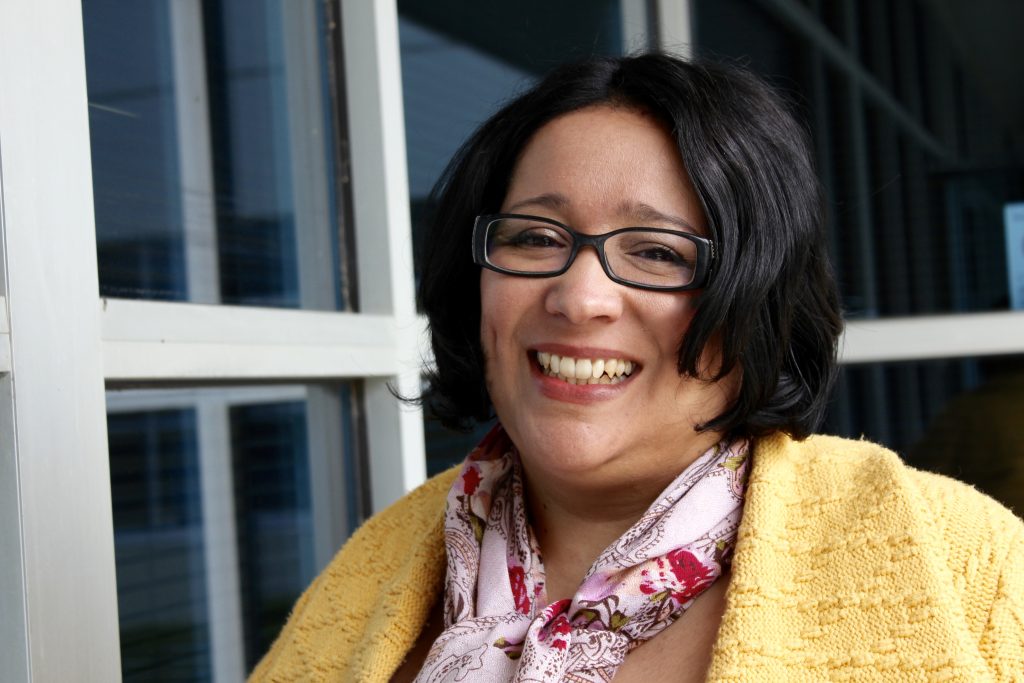
In the 1950’s, representatives from a steel company in Lorain, Ohio traveled down to Puerto Rico to recruit much-needed factory workers. They succeeded in convincing Crucita Flecha’s maternal and paternal grandparents (among many others) to move from their small town in Puerto Rico to the Midwest. Flecha’s grandfather worked in these Ohio steel mills until retirement, while her father found work at a Ford Automotive Plant in the neighboring city of Vermillion, Ohio.
Flecha’s family legacy of industrial work is shared by many Puerto Ricans living in Lorain. The city’s sizable Puerto Rican population can trace it’s roots back to the steel-mill recruiters in the mid-twentieth century. This is why when moving to Columbus, Ohio for law school in the 1990’s, Flecha was surprised by the comparatively smaller Latino community. After graduating from Capital Law School, she moved to Florida to practice for a few years before returning to Columbus. Once back, she was excited to find the city’s Hispanic population had grown and diversified.
Now, Flecha works as an attorney in the city. Working now with immigration, Flecha has become aware of the United State’s historic tendency to change laws to suit their economic need. This is something she’s noticed also on a personal level with the once fluctuating status of Puerto Rican’s as U.S. citizens. We spoke on her family history as well as her insights on immigration law for this week’s ¡Dímelo, Columbus!:
Lorain, Ohio – a steel town:
🎧 Listen (4:00)
“Lorain [Ohio] has a huge population of Puerto Ricans. I, myself, am Puerto Rican. My parents came from Puerto Rico when they were young, when their parents came [to the United States] to work in Lorain. At that time in the ’50s, there was a huge demand for steel workers. The company actually went to Puerto Rico and recruited labor because they didn’t have enough people to work the steel mills… My parents actually knew each other in Puerto Rico growing up and a lot of families from their little town came over to Lorain and a lot of them started working at the steel mill… By the time my father was working age, Ford Motor Company had their huge base in Vermillion (Ohio) which was a few miles away from Lorain. There was a lot of employment in the area.”
◈
“I think this country goes through stages… Where you go through, ‘Oh we need labor, so let’s recruit immigrants.’ And, you know, Puerto Ricans are citizens by birth, but that was not always the case in Puerto Rico – there were a lot of statutes that had to pass and a lot of self-interest I think for the United States… When the demand is high you have companies recruiting and sometimes they recruit by whatever need.”
A growing community in Columbus, Ohio:
🎧 Listen (3:08)
“Lorain is very small, but there’s a lot of diversity there… Coming to a city and a law school [in the 1990s] where you could count how many Hispanics on one hand, was definitely an eye-opener… In the early 2000s, maybe a little before that, that’s when the community started coming. It seemed like from one instant to another the communities were popping up everywhere. And it started with the immigrant community, with labor.”
Practicing immigration law:
🎧 Listen (6:06)
“I always was aware of the immigration issues that existed when I first moved to Columbus. Of course, because there weren’t a lot of attorneys who spoke Spanish. Individuals always came to me, even years and years ago, asking for immigration help… People think it’s black and white, that it’s a matter of people not coming in the right way… or not wanting to follow the rules or the system. And they don’t realize that the system is archaic, that the system doesn’t work very well, that it’s self-defeating.”
◈
“During the times where labor was desperately needed here, undocumented individuals were used and abused to stabilize this economy… You have individuals who get brought over, they’re promised housing, they’re promised pay and their housing is atrocious. It’s not in the news…”
◈
“The whole concept that if you come over you’re an outright criminal, that simplifies it… There’s less crime in immigrant communities statistically. That does matter!.. History has a way of repeating itself and correcting itself. Unfortunately, innocent people get hurt in the process.”

